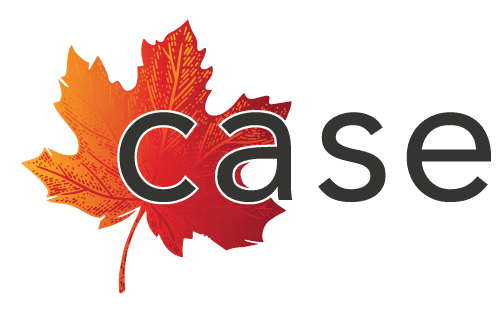Almost One Third of Indigenous People in Canada Experience Disability
CASE Press Release
Pour la version française de ce communiqué de presse, veuillez cliquer ici.
Almost One Third of Indigenous People in Canada Experience Disability
Businesses can build authentic, reciprocal relationships to support Indigenous workers—and to enhance business resilience.
HALIFAX, NS – November is Indigenous Disability Awareness Month, which was founded by Indigenous Disability Canada/BC Aboriginal Network on Disability Society. Almost one third of Indigenous people in Canada experience disability.¹ With the growth of Indigenous populations and businesses, mainstream businesses can enhance organizational resilience and support Indigenous workers by strengthening workplace inclusion and equity. CASE’s national MentorAbility initiative is collaborating with Mentor Canada to develop a mentoring resource for Indigenous youth experiencing disability, supporting employment and career growth.
Indigenous Youth: Up-and-Coming Workers and Leaders
Indigenous Peoples are the fastest growing population in Canada with more than 1.8 million people, and are also the youngest, with more than 40 per cent under the age of 25.²
Indigenous youth are up-and-coming workers, entrepreneurs, and leaders.² The number of Indigenous enterprises and investments in all sectors is climbing , a trend expected to continue.³
Almost One Third of Indigenous People Experience Disability
Almost one third of Indigenous people in Canada experience disability, which can be non-apparent, like mental health challenges.¹ A report by Community Futures Treaty Seven, funded by the Canadian Association for Supported Employment (CASE), states that the psychological harm caused by workplace racism and ableism is a common concern for Indigenous job seekers experiencing disability.4
A 2024 KPMG survey found that 61 per cent of Indigenous workers with disabilities experienced workplace ableism. Three quarters said they must work harder than colleagues without disabilities to be valued and recognized in the same way.5
Authentic, Reciprocal Relationships Support Workers—and Business Resilience
For mainstream businesses, building authentic, reciprocal relationships is essential to supporting and retaining Indigenous workers—and to enhancing business resilience. Businesses can start by strengthening workplace inclusion and equity through ongoing learning, connecting with local organizations, and mentoring.
Ongoing learning (and unlearning) about the historical and ongoing discrimination faced by Indigenous Peoples is vital to understanding the context in which Indigenous staff, clientele, suppliers, and partners live, work, and do business.
Businesses can start with ongoing learning, connecting with local organizations, and mentoring.
Employers can connect with local Indigenous employment organizations. They can attend job fairs to access skilled workers and learn about workplace supports for Indigenous workers experiencing disability.
Inclusive Mentoring Strengthens Workplace Culture
Businesses can strengthen workplace culture and increase retention through inclusive mentoring. Mentoring, especially with a mentor who is Indigenous and/or experiences disability, increases connections and supports success.
CASE’s national MentorAbility initiative, which is funded in part by the Government of Canada’s Opportunities Fund for Persons with Disabilities, is collaborating with Mentor Canada to develop a mentoring resource for Indigenous youth experiencing disability, supporting employment and career growth.
“For Indigenous youth experiencing disability, mentoring can be the critical link that unlocks their full potential.”
“For Indigenous youth experiencing disability, mentoring can be the critical link that unlocks their full potential,” said Tracy Luca-Huger, Executive Director at Mentor Canada. “Our partnership with MentorAbility is a significant step toward closing Canada’s Mentoring Gap through inclusive mentoring. We are committed to co-developing this resource in partnership with Indigenous advisors and experts from our national Advisory Committee.”
“When everyone gets a fair shot, our communities thrive. Through MentorAbility, we’re helping persons with disabilities connect to meaningful work, grow their skills, and show what’s possible when barriers come down. That’s how we build a stronger, more inclusive Canada, together,” said the Honourable Patty Hajdu, Minister of Jobs and Families and Minister responsible for the Federal Economic Development Agency for Northern Ontario.
Visit the CASE website at supportedemployment.ca to access resources on inclusive recruiting and workplace accessibility and to find a local employment service provider who can support job seekers and employers.
The Canadian Association for Supported Employment (CASE) is a national association that facilitates opportunities for community-based employment service providers, employers, and persons experiencing disability to increase disability employment equity and inclusion in Canada.
***
For more information, please contact:
Joanna Goode | Executive Director
Canadian Association for Supported Employment
Email: [email protected] | Phone (EST): 1-800-684-5628 ext. 700
References
- Statistics Canada. Table 41-10-0049-01 Disability status, disability severity class and labour force status by Aboriginal identity, age group and sex. Released March 17, 2021.
- Indigenous Services Canada. An update on the socio-economic gaps between Indigenous Peoples and the non-Indigenous population in Canada: Highlights from the 2021 Census. October 25, 2023.
- The growing contribution of Indigenous peoples to the Canadian economy. September 24, 2024.
- Community Futures Treaty Seven, funded by Canadian Association for Supported Employment. Indigenous Experience with Disability and Employment. March 2025.
- Canadians with disabilities experience ableism at work. December 2, 2024.

